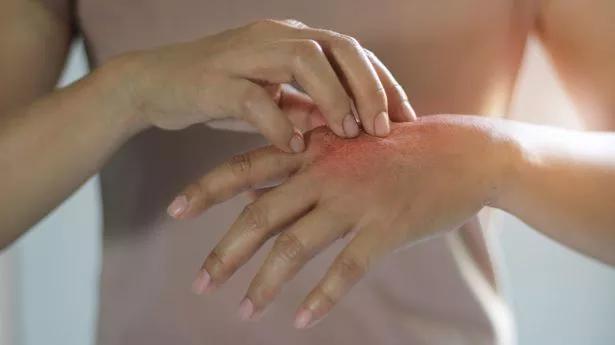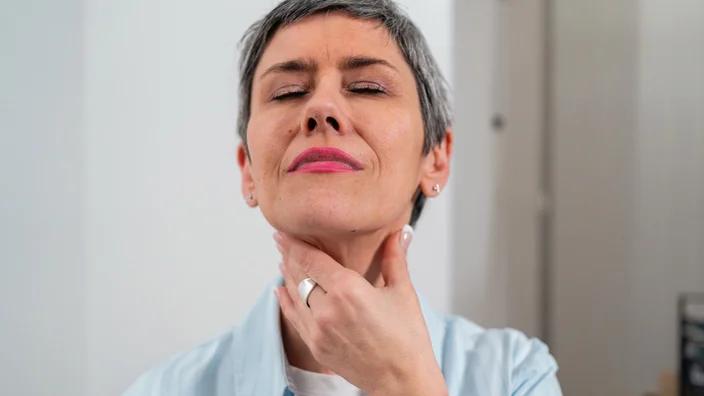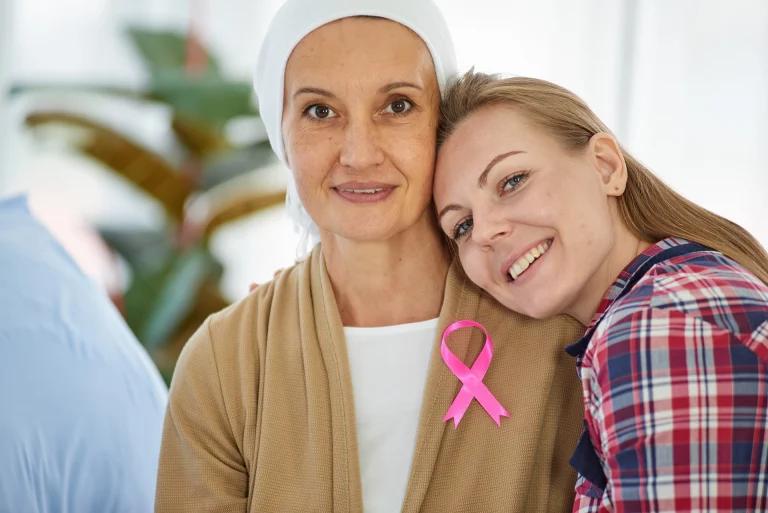Lymphoma is a general term that describes a group of blood cancers of the lymphatic system. These cancers affect the lymphocytes (a type of white blood cell) and impair the body’s immune response. It is the 5th most common type of cancer in the UK. Survival rates from lymphoma are based on several factors, including the type or subtype of lymphoma, age, overall health, and personal decisions. Lets take a deeper look into this.
📝 What is lymphoma?
Lymphocytes travel around your body in the lymphatic system, carrying a fluid called lymph. They are part of the immune system and their primary function is to help fight infection. The lymph fluid passes through glands (lymph nodes), which are spread throughout your body.
Lymphoma starts when a single lymphocyte undergoes an unnatural change (mutation) and becomes a cancerous lymphoma cell. Eventually healthy cells are crowded out and cancerous lymphoma cells build-up in the lymph nodes and other parts of the body.
📝 Types of lymphoma
- Hodgkin Lymphoma (HL)
- Non-Hodgkin Lymphoma (NHL)
Under the microscope
The main difference between Hodgkin and Non-Hodgkin lymphoma is the presence of abnormal cancer cells called Reed-Sternberg cells. Hodgkin lymphoma produces these types of cells, but non-Hodgkin lymphoma does not. These cells have more than one nucleus when seen under a microscope and are often described as owl’s eyes.
Hodgkin Lymphoma (HL)
Classic Hodgkin lymphoma is the most common form of this disease, typically starting above the diaphragm in the neck, armpits, or chest.
The American Cancer Society’s estimates for Hodgkin lymphoma in the United States for 2025 are:
- About 8,720 new cases (4,840 in males and 3,880 in females)
- About 1,150 deaths (720 males and 430 females)
Non-Hodgkin Lymphoma (NHL)
The two most common subtypes of non-Hodgkin lymphoma are diffuse large B-cell lymphoma and follicular lymphoma.
The American Cancer Society’s estimates for non-Hodgkin lymphoma in 2025 are:
- About 80,350 people (45,140 males and 35,210 females) will be diagnosed with NHL. This includes both adults and children
- About 19,390 people will die from this cancer (11,060 males and 8,330 females)
📝 Staging
Staging is the process of working out which parts of your body are affected by lymphoma. It can be thought of as how ‘advanced’ your lymphoma is. The lymphatic system is all over the body so it is common for lymphoma to be at an advanced stage when it is diagnosed. However, there is effective treatment for both early and advanced stage lymphomas.
The tests and scans you have when you are diagnosed help doctors to work out the stage of your lymphoma, which helps your medical team plan the most appropriate treatment for you.
- Stage 1 – A single group of lymph nodes affected anywhere in the body
- Stage 2 – Two or more groups of lymph nodes affected (on the same side of the diaphragm)
- Stage 3 – Two or more groups of lymph nodes affected (on both sides of the diaphragm)
- Stage 4 – lymphoma that has spread to at least one body organ outside the lymphatic system e.g. bone marrow, liver, intestine
Different types and stages of lymphoma respond to different treatments. Lymphomas can be aggressive (fast-growing or high grade) or indolent (slow-growing or low grade).
🏥 Symptoms of lymphoma
- Swollen lymph nodes
They’re usually not sore and might feel like a lump under the skin. Lumps usually have a smooth, rubbery feel and move easily under the skin when pressed
- Fatigue
Unlike normal sleepiness or tiredness this kind of exhaustion can’t be relieved by a nap or a goodnights sleep.
- Night sweats
Some people with lymphoma wake up with their sheets soaked from drenching night sweats. Sometimes you will sweat heavily during the daytime too.
A couple of kilograms of loss isn’t significant, but you may lose anywhere close to 10% of your body weight over the course of several months without trying.
Lymphoma cells release substances that can increase body temperature leading to a low fever that may come and go.
❗ Risk factors
Like most cancers, the majority of the genetic mutations that cause lymphoma happen spontaneously, without a clear cause. Some conditions or issues may increase your risk of developing lymphoma:
- Age
- Gender, with it being more common in males
- Having a medical condition that already weakens your immune system
- Family history
- Previous exposure to the Epstein-Barr/Herpes viruses
🔬 Diagnosis
- Physical exam to check for swollen lymph nodes
- Blood and urine analysis to rule out other forms of infection or disease
- A biopsy involving removal of a sample of lymph nodes to test for cancerous cells
- CT/MRI scans
- Bone marrow biopsy
- Lumbar puncture
💊 Treatment options
Lymphoma treatment involves a range of different options depending on discussion with a healthcare provider. Treatment plans focus on helping people to have a good quality of life and successfully manage the condition.
- Chemotherapy. Oral or IV medication that targets and kills cancerous cells. It can be used as a stand alone cancer treatment or combined with radiation therapy and biological therapy
- Radiation therapy. Commonly used for early stage cancer where a localised source of lymphoma has been found. It uses high energy beams to kill cancer cells
- Immunotherapy. This therapy is used to change immune cells in your system to help fight the cancer cells
- Bone marrow transplants
- Other methods of treatment, including a stem cell transplant, alternative drugs, or drug combinations
Side effects of treatment
Lymphoma treatments may have different side effects because people often have different reactions to the same treatment. Your healthcare provider can provide information about treatment side effects and what you can do to manage them.
📊 Lymphoma survival rates
Hodgkin lymphoma
Survival for all stages of Hodgkin lymphoma
According to Cancer UK data, generally for people with Hodgkin lymphoma in England:
- More than 90% survive their cancer for 1 year or more after diagnosis
- 85% survive their cancer for 5 years or more after diagnosis
- 75% survive their cancer for 10 years or more after they are diagnosed
Non-Hodgkin lymphoma
Survival for all non-Hodgkin lymphomas
According to Cancer UK data generally for people with Non-Hodgkin lymphoma in England:
- 80% survive their cancer for 1 year or more after they are diagnosed
- 65% survive their cancer for 5 years or more after diagnosis
- 55% will survive their cancer for 10 years or more after they are diagnosed
Some important information about these survival statistics:
- The terms 1 year survival and 5 year survival don’t mean that you will only live for 1 or 5 years
- The NHS, other health organisations, and researchers collect information from clinical trials. They record what happens to people with cancer in the years after their diagnosis. Five years is a common time point to measure survival, but some people live much longer than this (prognostic factors must be considered)
- 5 year survival is the number of people who have not died from their cancer within 5 years after diagnosis
📈 📉 What affects survival
Lymphoma survival depends on many factors. These are called prognostic factors.
These factors include what stage lymphoma is in your body and if certain symptoms (B symptoms) are present when you were diagnosed. B symptoms include:
- Unexpected weight loss in the past 6 months
- Excessive sweating at night
- High temperatures
The type of lymphoma, each patient’s lymphocyte counts, lactate dehydrogenase (LDH) levels and red blood cell counts and general health also affect your survival. Healthcare professionals will use many tools to predict your outlook.
📝 Conclusion
The two main types of lymphoma are Hodgkin’s and Non-Hodgkin’s lymphoma. According to Cancer UK data, Hodgkin’s lymphoma has a better survival rate than Non-Hodgkin’s lymphoma. Survival and length of survival from either type of lymphoma is dependant on many prognostic factors. In general, the earlier lymphoma is diagnosed the better the prognosis. Survival rates are general statistics based on large groups of people. They can never tell you what will happen for you as an individual.
Sources
- Cancer Statistics Center – American Cancer Society
- How Common is Lymphoma? – Key Statistics for Non-Hodgkin Lymphoma – American Cancer Society
- Survival for Hodgkin Lymphoma – Cancer Research UK
- Survival for non-Hodgkin lymphoma | Cancer Research UK
- Lymphoma: Symptoms, Causes and Treatment
- Hodgkin lymphoma – NHS
- Non-Hodgkin lymphoma – NHS
- About Cancer – Cancer Research UK
Medical Disclaimer
NowPatient has taken all reasonable steps to ensure that all material is factually accurate, complete, and current. However, the knowledge and experience of a qualified healthcare professional should always be sought after instead of using the information on this page. Before taking any drug, you should always speak to your doctor or another qualified healthcare provider.
The information provided here about medications is subject to change and is not meant to include all uses, precautions, warnings, directions, drug interactions, allergic reactions, or negative effects. The absence of warnings or other information for a particular medication does not imply that the medication or medication combination is appropriate for all patients or for all possible purposes.









